On the edge: How Ring of Honor fights for attention in wrestling's crowded landscape
TORONTO - The Beer City Bruiser looks exactly the way you'd imagine: Built like a barrel, he drains cans to chants of "BEER! BEER! BEER!" from the crowd as he makes his way to the ring.
Billed at 323 pounds, he's dragging a small keg that might as well be an oversized pint glass in his hands. With a massive cigar clamped between his teeth, the Bruiser crushes cans of cheap suds with fans en route to his tag-team bout - a bout that quickly turns into an all-out brawl.
It's SummerSlam weekend in Toronto, and one of World Wrestling Entertainment's biggest shows of the year will take over Scotiabank Arena on Sunday, Aug. 11. But Friday night belongs to Ring of Honor, a smaller pro wrestling promotion showcasing its Summer Supercard at a 3,850-seat venue carved out of the old Maple Leaf Gardens.
The Bruiser and Brian Milonas, together known as The Bouncers, are fighting in a "dark match" - an untelevised bout meant to entertain the live audience before the cameras roll. Meanwhile, at a line of tables set up in front of a modest concession stand, some of ROH's top talents are meeting fans.
One of those talents is ROH world champion Matt Taven. When the 34-year-old first laced up his boots for ROH seven years ago, wrestling-specific streaming services were a long way off and pro wrestling was much harder to access. It would be another two years before WWE launched its Netflix-esque WWE Network, three years until New Japan Pro Wrestling streamed its first event with English commentary, and six before ROH's Honor Club streaming service debuted.
Today, geographical borders, tape trading, and 1 a.m. TV slots are obstacles of the past. Few barriers stand between wrestling fans and their passion.
But accessibility can be a double-edged sword. More choice also means more opportunities for eyeballs to look elsewhere and for butts to leave seats. And the biggest such opportunity in nearly two decades, perhaps since WCW's final show in March 2001, looms on the horizon: All Elite Wrestling, backed by a billionaire pro sports owner.
A life in the squared circle
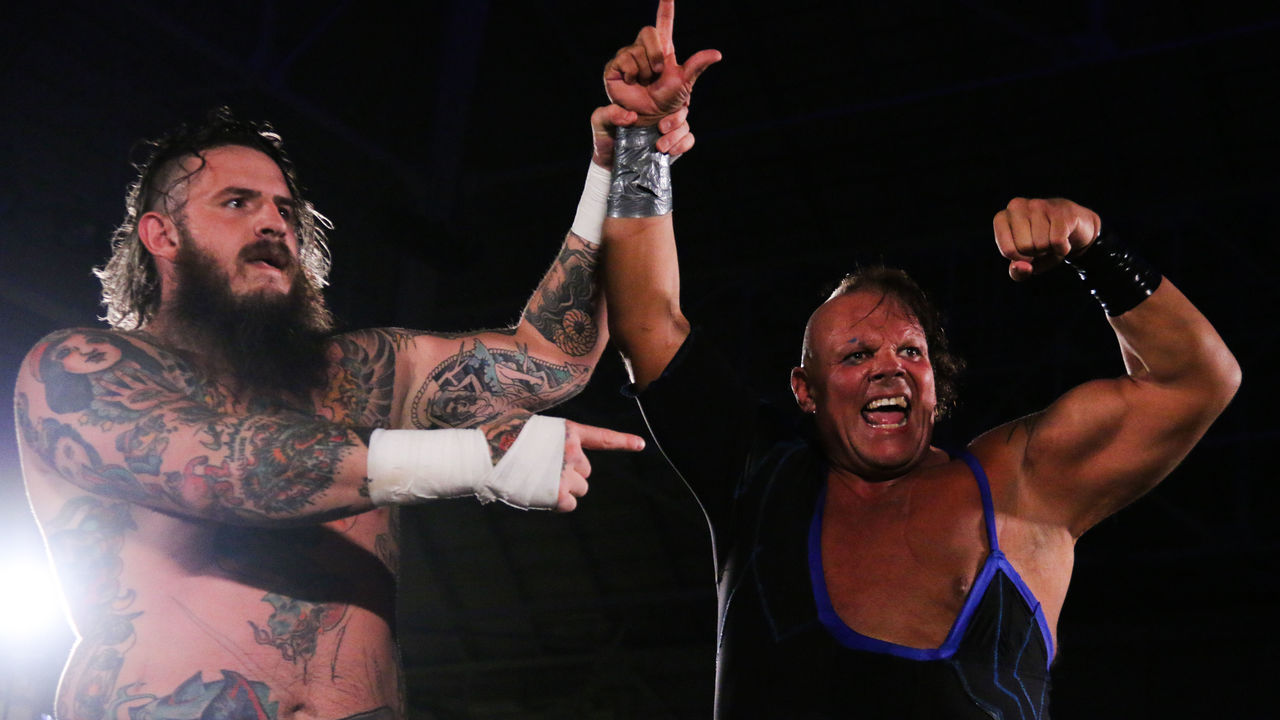
As the televised card approaches, Taven and the other wrestlers disappear from the Mattamy Athletic Centre concourse. The lights dim, ROH's intro rolls, and the first on-air match begins with the entrance of two members of wrestling stable Villain Enterprises.
Brody King, billed at 6-foot-5 and 285 pounds, wears a ski mask and is covered from head to boots in tattoos. He looks tame compared to his partner, a broad, leather-clad monster known as PCO. His real name is Carl Ouellet, but he's been called the French Canadian Frankenstein, Perfect Creation One, Killer Karl Wallace, Super Bee No. 1, and, once upon a time, just Pierre.
Anyone with that many monikers is a real veteran of the business. Through more than 30 years of wrestling, from the WWE caricatures of the mid-'90s that earned him a spot at Wrestlemania X in New York to a Canadian independent circuit far removed from Broadway, he's experienced all the peaks and valleys of a life lived in the squared circle.
Older wrestling fans might remember him as one half of The Quebecers, who held the WWE tag team belts on and off for a time in the early 1990s. But at 51 years old, PCO says his best time in the business has been the last nine months with ROH.
"If you compare being three-time WWE tag team champion, that was a run that was over a span of eight months. … But if you compare this year, it's much more fun going to work every day," he says over the phone from Montreal.
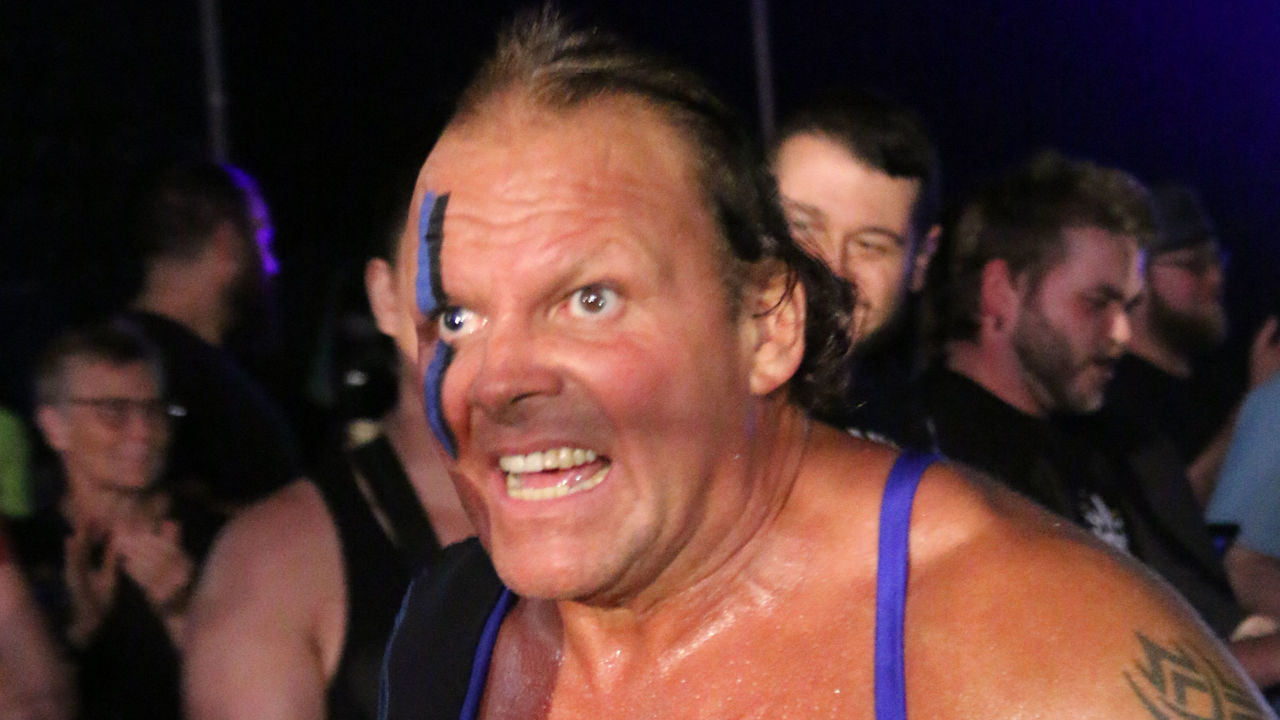
Since signing with ROH in late 2018, PCO has held the promotion's tag team championship, its six-man tag team championship, and the NWA tag team belts. He's also earned a title match against Taven for the ROH World Championship.
"Becoming a world champion was always the main goal, so I feel like being put back on that track where I always wanted to be and where I always dreamed to be," PCO says. "That's why I'm so happy, so motivated, so passionate about it - because that's what I was dreaming about all my life. It's happening late … that's why it's so rewarding."
In ROH's battle for attention against WWE, AEW, and other promotions, Taven says ROH's calling card is its combination of cutting-edge wrestling and an appealing confluence of styles.
"I really truly believe that Ring of Honor has its finger on the pulse when it comes to the next step and what is the evolution of wrestling," Taven says over the phone from an airport on his way to Toronto the day before the show.
"You get the best technical wrestlers - guys like Jonathan Gresham. You get the best luchadores - guys like Bandido. You get guys from all over the world -the Marty Scurlls. The guys that are on the mic, like myself. The consummate professionals like Jay Lethal. That's Ring of Honor's melting pot, that's what you get."
The bleeding edge
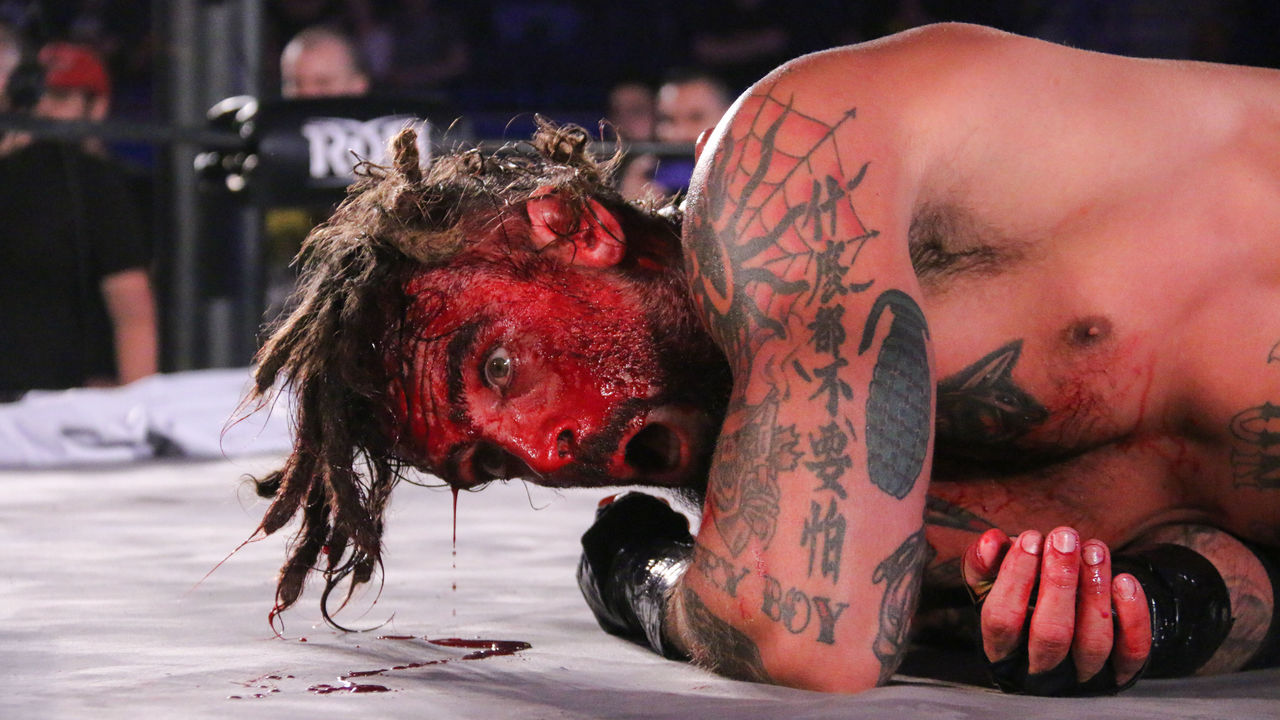
"This man is not human!" commentator Ian Riccaboni proclaims as PCO jerks and lumbers to the ring like a machine that needs oil. The crowd, though not quite a sellout, is roused by his arrival, and the atmosphere swiftly shifts from listless to loud.
Someone yells "Kill him!" as PCO delivers a running, sliding dropkick to the back of opponent TK O'Ryan's head. There's a quick tag to Brody King, who delivers a chop to his opponent's chest that resonates with a thud you can feel in your gut. Fans cringe in delight.
Despite the violence on display, the R-rated chants from the crowd, and the equally abrasive responses from the wrestlers, it's a family atmosphere. Everyone in the building has at least one thing in common: They love professional wrestling.
Ten minutes later, PCO finishes a pancaked TK O'Ryan with a moonsault from a top rope and a pin. Yes, a 51-year-old man billed at 300 pounds back-flipped from the top of the ring onto another human being. A moonsault from a big man, impressive as it is, might not be the world's most dangerous wrestling move. But it's an appetizer for some of the violence to come.
That violence is part of the perceived edge that fans can find beyond the tightly controlled environment of WWE. Ring of Honor general manager Greg Gilleland describes ROH's brand of pro wrestling as "more realistic," more physical, and less reliant on theatrics. Many maneuvers are reported to be either banned outright by WWE or reserved for a few performers who have special permission to execute them: the piledriver, the brainbuster, the burning hammer. (Google at your own peril; they're as nasty as they sound.)
But, according to PCO, Ring of Honor has less stringent restrictions. Innovation and freedom are prized, and that helps keep ROH fresh and competitive.
"You're totally free to do whatever you think might work," PCO says. "It's very modern wrestling. It's very new-age wrestling.
"There's a lot of moves that have been done on knees now, you know - let's say a suplex with you popping the guy on your knees. There's a lot of apron bumps getting very popular; there's a lot of crazy high-flying moves from the top ropes to the other side. … There's a lot of spectacular things that you'll see with Ring of Honor that you might not see with WWE.
"Not that they don't care for their talent. But (ROH) want(s) to let them be themselves and do what they think is going to get them over."
To "get over" in wrestling is to resonate with the crowd - to draw the intended reaction from fans, whether it's boos or cheers. And PCO is most definitely over.
Parts unknown
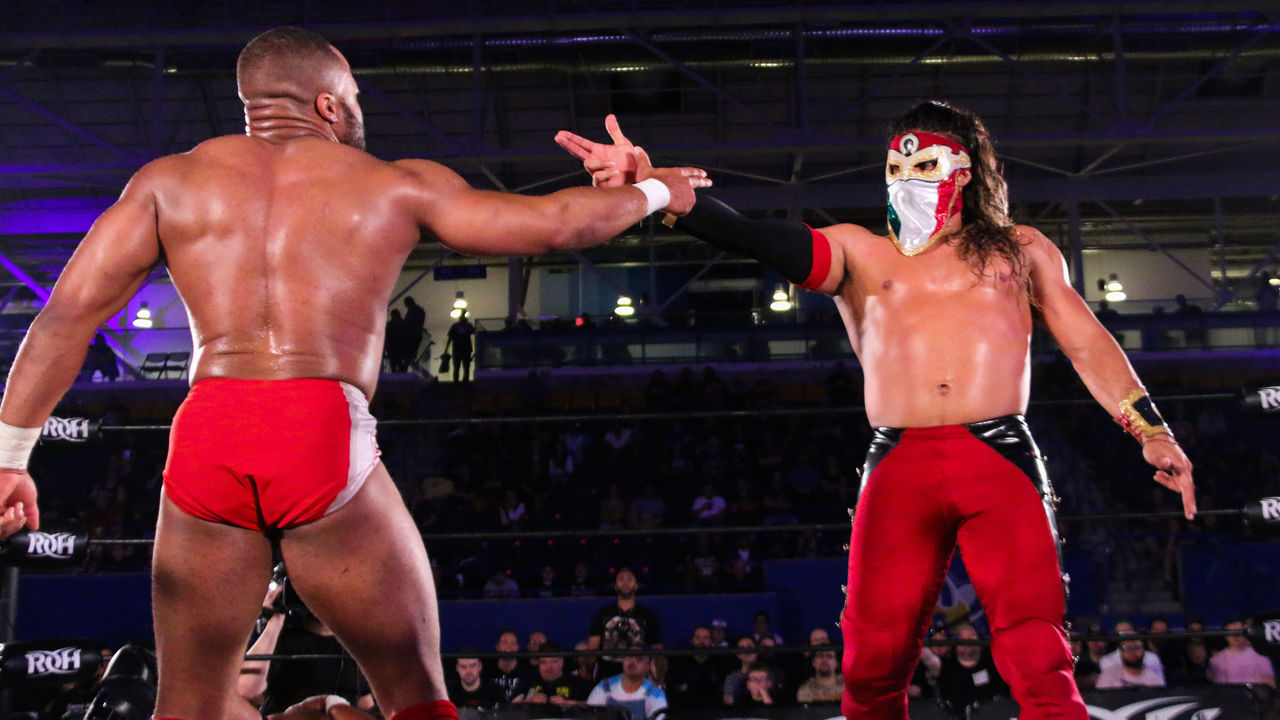
ROH's Summer Supercard is four matches deep now, and the floor seats have filled with a mostly male contingent of fans carrying bags of merch and comparing notes between bouts. Many audience members are draped in gear representing Bullet Club, the wildly popular faction of heels (slang for "bad guys") originating in New Japan Pro Wrestling.
But there's a noticeable lack of WWE apparel. While plenty of fans will swap their Bullet Club blacks for Seth Rollins reds come Sunday, others simply aren't interested in the style of wrestling entertainment Vince McMahon's outfit is hawking. The man wearing a vintage-looking jean jacket bearing ECW's moniker, who also has a small tattoo of a skull on his face, presumably won't be lining up to cop the latest "I'm a hugger" shirt at Scotiabank.
While constantly being measured against WWE is a reality for most wrestling promotions of significant size, those comparisons don't solely define ROH's place in the ecosystem. To most of the general public and many casual wrestling fans, promotions such as Ring of Honor represent "The Others" - the often grittier professional promotions that offer alternatives to the PG narratives and scripted vignettes of WWE.
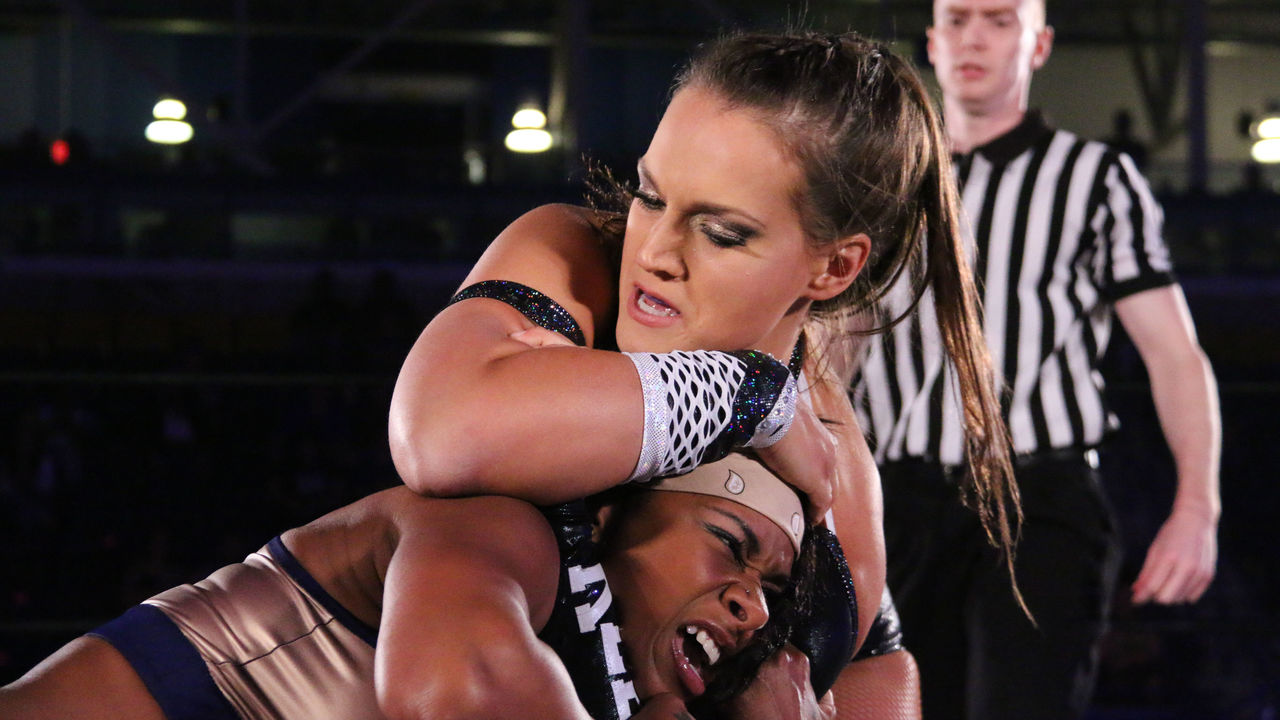
It's tempting for outsiders and casual fans to paint all promotions that aren't WWE with the same brush. But "The Others" are as diverse as you can imagine - from independent local outfits employing part-time athletes and playing beer halls, to historic foreign promotions whose founders went on to successful political careers in their home countries (that'd be New Japan Pro Wrestling, founded by Antonio Inoki).
Ring of Honor is an established brand with syndicated television deals and its own streaming service. It represents a viable career path for men and women who want to make their livelihoods in the squared circle.
"Trust me when I say, it's a major league," PCO says.
But it's not WWE, a company with worldwide broadcast television deals, a feature film production studio, and a pedigree that stretches back 67 years.
From a wrestler's point of view, PCO says the contrast between a promotion like WWE and ROH is less stark than one might assume.
"I can't say on all levels (ROH) can compete with (WWE) moneywise … but they're paying good money. And you can make good money with merchandising too, with T-shirts and everything," he says.
Gilleland won't reveal exactly how merchandise deals work in ROH but noted that they're different depending on the performer. Generally speaking, when it comes to compensation, "we are competitive," he says.
PCO describes the Ring of Honor event schedule as far less punishing than WWE's. At about 50 shows a year, he says, "You might make a little bit more money (with WWE) but you'll be working 250 days a year and (it's) twice as expensive."
Wars on 2 fronts
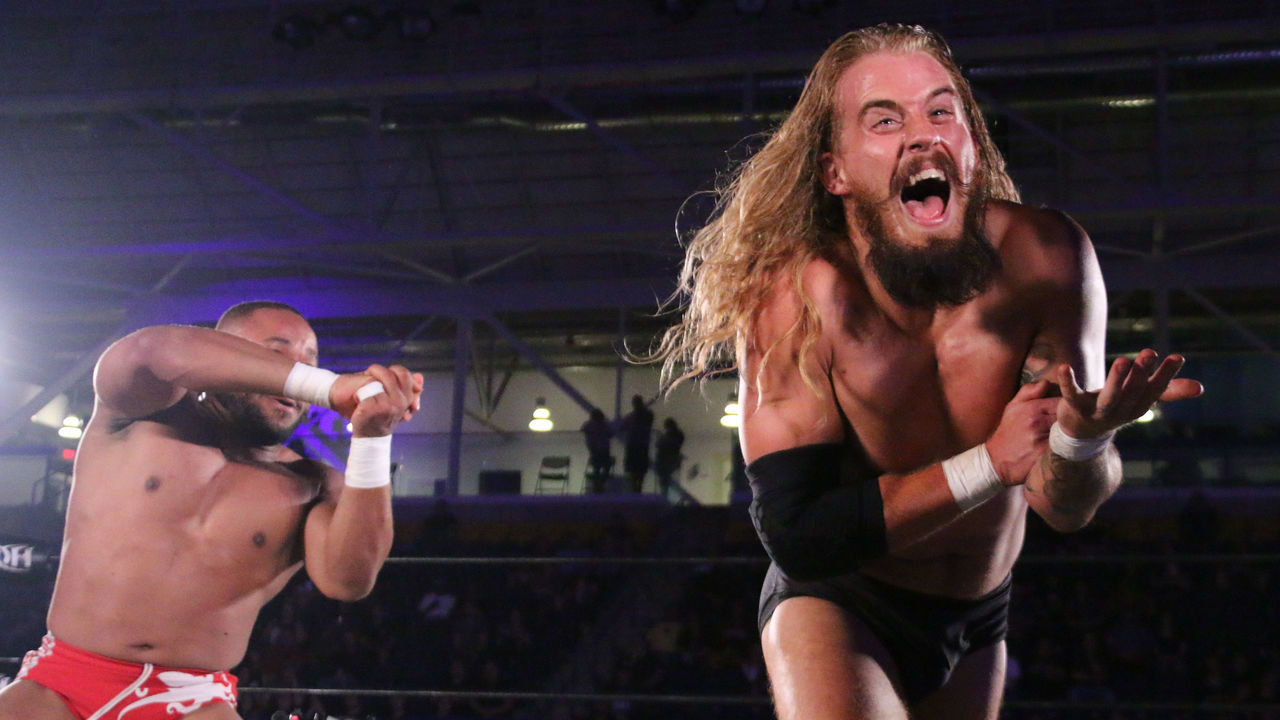
In a blur of $7 beer and powerbombs, the hours roll by. We're treated to a crisp defence of the Women of Honor World Championship, a wild six-man luchador match full of high spots and mayhem, and a singles contest in which Taven defends his world title against Alex Shelley.
But the best is yet to come.
A wrestling show has a pulse, a rhythm, all its own. A fast-paced tag match might be followed by a slower, more physical singles bout. A 30-minute marathon might be preceded by a light-hearted comedic affair. In this case, Taven and Shelley's wrestling match was the appetizer for all-out battle.
The lights cut out and the 12-foot tall video display at the wrestlers' entrance area flashes the familiar skull and crossed assault rifles that represent Bullet Club.
The main event is a tag-team contest between Bullet Club members Guerrillas of Destiny from NJPW and ROH's own The Briscoe Brothers, also known as Dem Boyz.
Despite their alignment with one of the most popular wrestling brands of the last 20 years, GoD are met with a mix of cheers, jeers, and boos from the crowd. They are, after all, hostile invaders to the territory as the tag-team champions of New Japan Pro Wrestling.
GoD's ring apparel looks like it was raided from the set of "The Matrix," with Tama Tonga and Tanga Loa in black, vaguely military-looking leather. The Briscoes, by contrast, wear ragged cargo pants, stained sleeveless shirts, and bandanas, like a two-man biker gang from a post-apocalyptic farm town. They'll meet in a Ladder War match - "war" being the operative word.
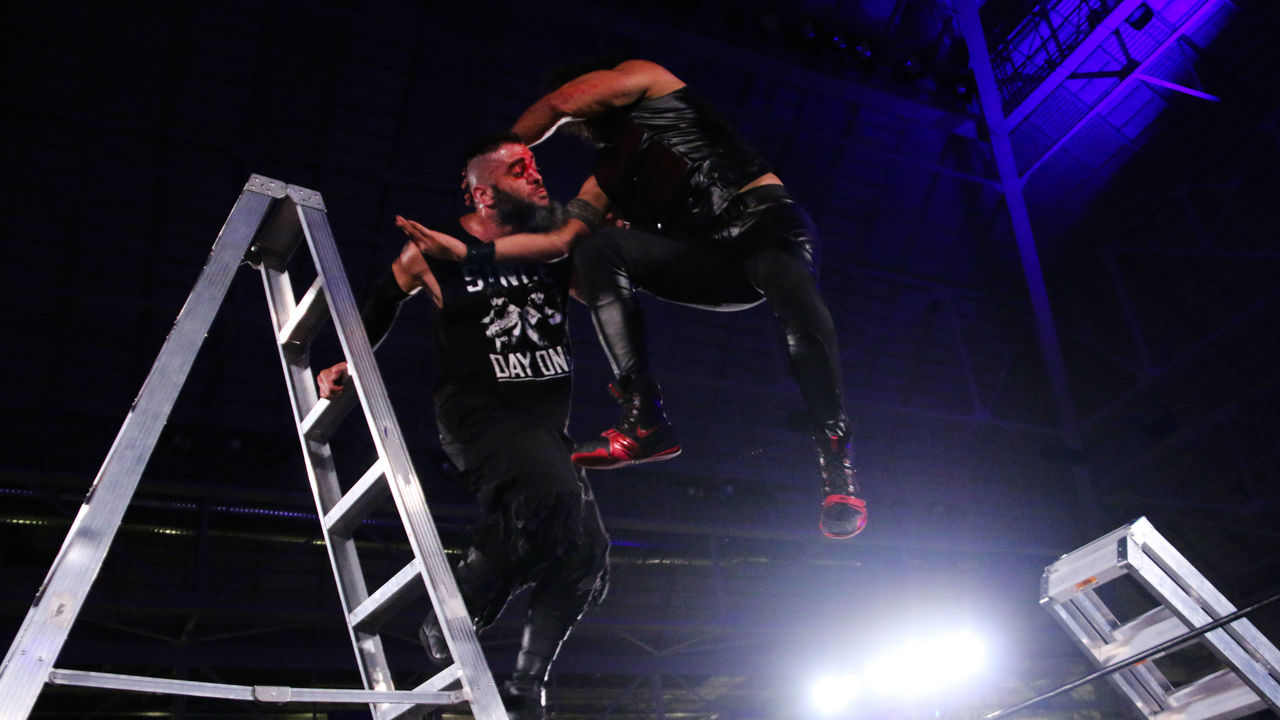
Beyond the ring, a less overtly dramatic war may be developing: a battle for eyeballs, advertising dollars, and talent, instigated by All Elite Wrestling.
Backed by Shahid Khan, the billionaire owner of English football club Fulham FC and the NFL's Jacksonville Jaguars, AEW has positioned itself as the hottest professional wrestling promotion outside of the WWE in less than a year of existence. With just a handful of shows under its belt and a few blockbuster talent signings, some observers are already touting the fledgling AEW as a WWE killer.
It's a force that ROH, and every wrestling promotion looking to maintain a market share of the hardcore wrestling fan base, will soon have to reckon with.
"I can't not mention All Elite Wrestling. It would be like … pretending they don't exist," PCO says. "We know they're going to start on October 2 on TNT, which is going to be major, too."
Packed with talent from the indy scene, AEW is publicly captained by pro-wrestling darlings Cody Rhodes, Kenny Omega, and The Young Bucks. That weekly TV deal has fans salivating at the prospect of another Monday Night War between AEW and WWE.
"That creates a little bit of a plus value for the wrestlers now because there's a little bit of fighting over talents," PCO says. "It's hard to predict things right now. They're buzzing. But it's really hard to know what's going to come out of that."
While AEW cultivates the raw energy and hardcore identity of The Others and WWE moves to sign as many indy talents as possible in retaliation, the ground currently occupied by the likes of ROH might seem treacherous.
Gilleland doesn't necessarily agree. "It forces everyone to be better," he says. "Competition is a good thing for everyone."
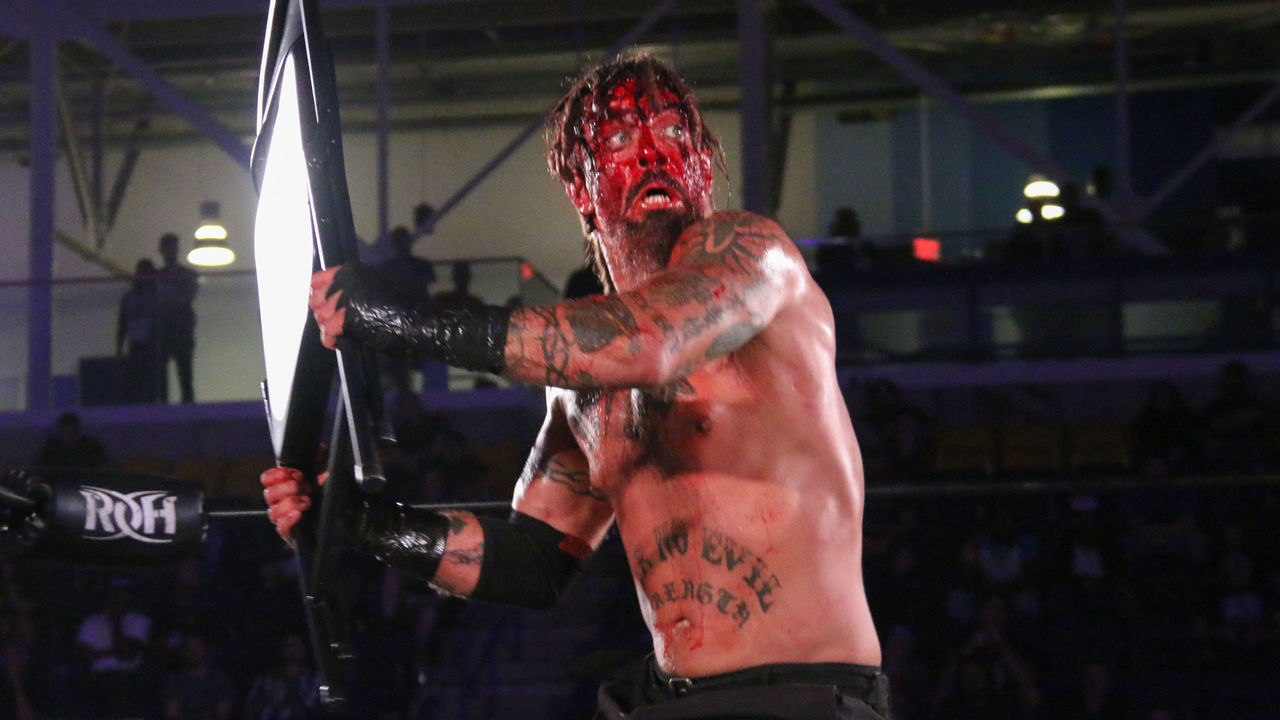
In Toronto, at least, Ring of Honor and The Briscoes come out winners. After 20 minutes of violent chair shots, sickening table spots, and a blood-covered ring (the origin of that blood being Jay Briscoe's face), Dem Boyz vanquish the invaders and retain the ROH tag-team championships.
It's the perfect climax to a night of choreographed violence. Fans exchange wry smiles. Even the most jaded smarks (slang for "smart marks," fans who think they've seen it all) can be heard saying, "That match was f------ sick."
In the seconds between a body being launched into the air and hitting a table, between the second and third pinfall count from a referee, wrestling fans find their moments of euphoria.
And, for now, Ring of Honor delivers.
Colin McNeil is a supervising editor with theScore Esports.
HEADLINES
- WWE's Bianca Belair Posts Physical Therapy Videos One Day After Finger Surgery - Wrestling Inc.
- Backstage Report Explains AEW Decision To Have MJF Beat Samoa Joe For World Title - Wrestling Inc.
- AEW's MJF Defends WWE Commentator Who Won Wrestling Observer Worst TV Announcer Award - Wrestling Inc.
- David Finlay's NJPW Contract Officially Expires Amid Expected Interest From WWE & AEW - Wrestling Inc.
- Jey Uso Eyes Eventual Return To WWE Singles Division: 'I Got More To Give' - Wrestling Inc.